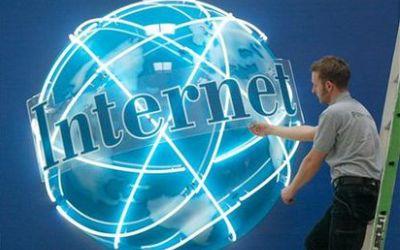Internet detox promotes the myth of web toxicity
There's something oddly puritanical about the urge to disconnect. Miller is a committed Christian, and approached his experiment as such, which might explain why he resorts to the language of sin and temptation that seems to saturate most critiques of the internet, especially when it comes to young people. This week, yet another study showed that children are going online younger and for longer, and the reaction from adults has largely been one of horror rather than celebration.
Miller, for his part, believed that constant communication was "corrupting his soul" and hoped, as many people seem to, that a period of digital hermitage might somehow save it. His disappointment when it didn't is gently tragic.
Communication fasting is the new detoxing, and there are simple reasons for the appeal. When so many of us have jobs that require us to be constantly interacting, saying "I hate the internet" is less contentious than admitting to hating work in this age of "strivers" and "skivers". Living in a world where bosses can email you at 4am and expect a response is exhausting and debilitating, but that's a problem of work, not technology. If you were worn out from digging holes for a living, it would make no sense to get angry at the shovel. The solution to a society that demands relentless productivity and ceaseless communication isn't less internet, but more autonomy – and you can't find that simply by switching off your router.
It's time to abandon the idea that there's a clear distinction between the digital world and the "real" world, or that we must give up one in order to experience the other truly. Academics refer to this false binary as "digital dualism", coined by the sociologist Nathan Jurgenson who defines it as "the belief that online and offline are largely distinct and independent realities". In fact, the physical and digital worlds map over and around each other, and technology, from the iPhone to the telegram to the toaster oven, affects every aspect of our lives, whether or not we choose to engage with it.
Technology, like sexuality, is a part of life that becomes a problematic preoccupation only when you convince yourself it's toxic. Like the dank daydreams of an abstinence preacher, deliberately avoiding something creates obsession; one imagines that Paul Miller was never more aware of the internet than when he made himself live without it.
None of which is to say that the occasional break from Twitter isn't relaxing. But every time a new technology changes the pace and scope of human interaction, from the printed word to the pixel, some curtain-twitchers are always convinced that it's unwholesome, sickness-inducing, and bad for the kids. People once believed that moveable type was evil because books distracted women from their work and allowed ordinary layfolk to read what was actually written in the Bible. Communications technology, though, can't "corrupt your soul" any more than abandoning it can save your soul – and the internet is no different.
Laurie Penny

